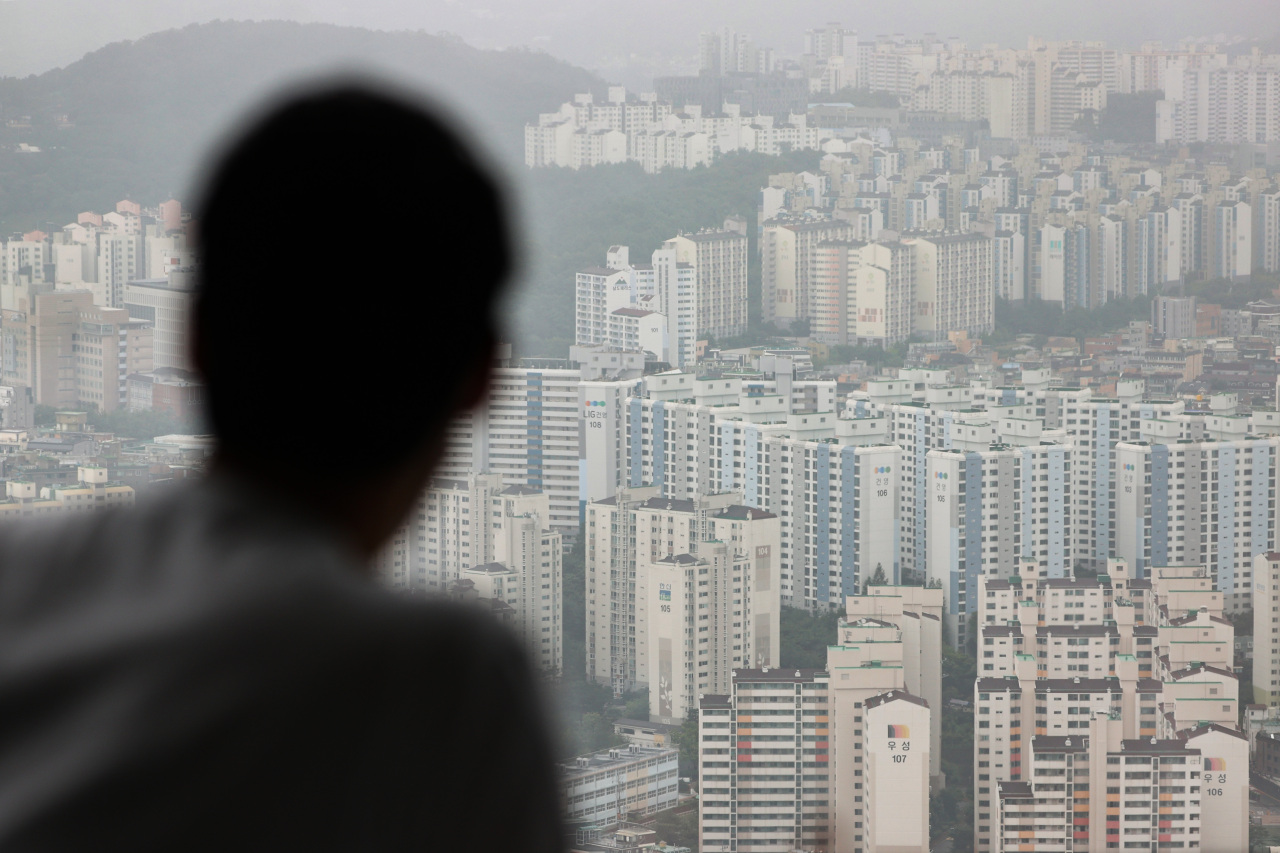[News Focus] Questions persist on effectiveness of ‘tenant protection’ laws
By Bae HyunjungPublished : Aug. 3, 2020 - 17:06

Debates are heating up in the housing market and among political parties over the merits of the recently introduced tenant protections laws.
While the ruling party saw the new rules as a vital step in stabilizing the bubble-prone market, opposition parties blamed the demanding new rules for further cutting back on the supply of housing.
“The new tenant protection laws were effectuated in an unprecedented speed in order to minimize market confusion,” said Lee Hae-chan, chairman of the ruling Democratic Party of Korea.
“But given the abruptness of the latest developments, it is comprehensible that the people should be curious and concerned,” he added, urging the government and ruling party to respond swiftly to “resolve the misunderstandings” about the new system.
The party chief was referring to the controversial fast-tracked legislative procedure of the corresponding laws, which excluded the boycotting opposition parties.
Last week, the National Assembly passed two of three housing bills aimed at protecting tenants amid a heated market, under the lead of the ruling party and despite the boycott of opposition parties.
Holding 176 out of the 300 parliamentary seats, the Democratic Party currently hold majority voting power over the main opposition United Future Party, which has 103 seats.
The key focus of the new legislation is to allow tenants to extend their two-year jeonse contracts for another two years for the sake of residential stability. Under the conventional law, the minimum guarantee for jeonse contracts was the initial two years.
Landlords may raise jeonse deposits within the limit of 5 percent once the four-year contract is over and are entitled to refuse additional lease extensions in case they move into their homes themselves.
Jeonse, a property lease system unique to Korea, allows tenants to pay a lump sum deposit, which is to be returned upon the termination or completion of the contract.
“The new rules provide little protection for tenants should landlords choose to convert their jeonse lease to monthly rent,” Kim Hyun-ah, an interim leadership member of the United Future Party, said in a radio interview with CBS.
“The biggest problem is when landlords decide to move in themselves, or at least make it appear that way, in order to dodge regulations.”
The former lawmaker who was a member of the parliamentary land committee is a leading figure within the conservative camp on housing policies.
Kim was pointing to increasing expedients adopted by landlords in order to dodge the reinforced contact obligations. An example is to refuse the jeonse extension and move in themselves, only to put the house on jeonse again at a later stage -- at an increased price.
Due to such practices, the jeonse market has recently contracted visibly, reflecting homeowners’ hesitancy to embrace the tenant protection rules.
The number of apartment jeonse and monthly lease contracts in Seoul dropped to 8,344 as of end-July from 19,232 in February, Seoul Metropolitan Government data showed.
In contrast, the volume of apartment transactions in the capital city soared to 15,589 cases in June, marking the third-largest monthly tally.
(tellme@heraldcorp.com)








![[Graphic News] More Koreans say they plan long-distance trips this year](http://res.heraldm.com/phpwas/restmb_idxmake.php?idx=644&simg=/content/image/2024/04/17/20240417050828_0.gif&u=)
![[KH Explains] Hyundai's full hybrid edge to pay off amid slow transition to pure EVs](http://res.heraldm.com/phpwas/restmb_idxmake.php?idx=644&simg=/content/image/2024/04/18/20240418050645_0.jpg&u=20240419100350)





![[From the Scene] Monks, Buddhists hail return of remains of Buddhas](http://res.heraldm.com/phpwas/restmb_idxmake.php?idx=652&simg=/content/image/2024/04/19/20240419050617_0.jpg&u=20240419175937)

![[KH Explains] Hyundai's full hybrid edge to pay off amid slow transition to pure EVs](http://res.heraldm.com/phpwas/restmb_idxmake.php?idx=652&simg=/content/image/2024/04/18/20240418050645_0.jpg&u=20240419100350)

![[Today’s K-pop] Illit drops debut single remix](http://res.heraldm.com/phpwas/restmb_idxmake.php?idx=642&simg=/content/image/2024/04/19/20240419050612_0.jpg&u=)